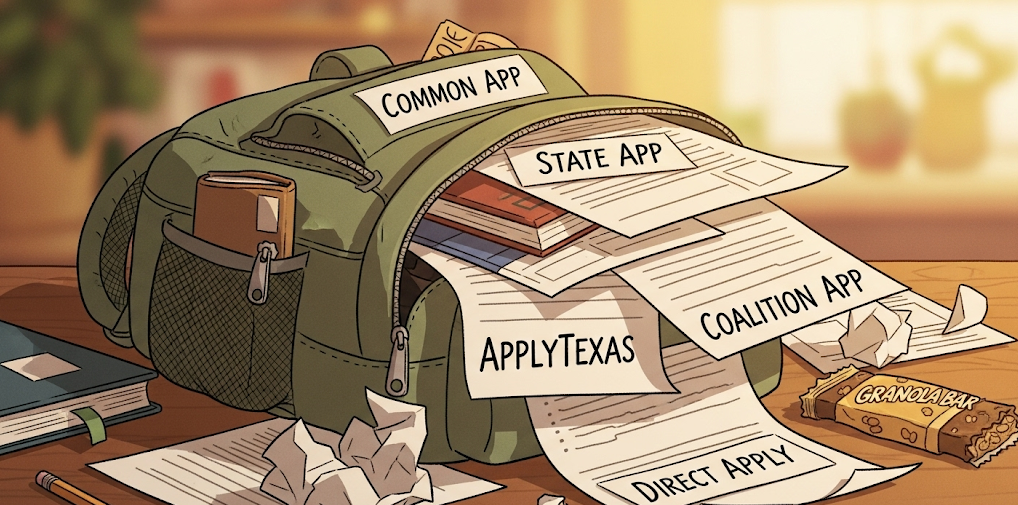
📄 One App to Rule Them All? When You Actually Need the Common App (and When You Don’t)
My daughter and I sat down one evening to get a head start on college applications. We opened up the Common App, made our account, started poking around—and 30 minutes later, we hit pause. Why? Because none of the schools on her list actually needed it.
If you’re confused about whether your student even needs to use the Common App, you’re not alone. The name makes it sound like everyone has to fill it out — but that’s not true.
This guide explains exactly when the Common App is worth it, when it’s a waste of time, and how to avoid making the same mistake we did.
✅ What Is the Common App?
The Common Application — or “Common App” — is a single application you can fill out and send to multiple colleges. It covers your personal info, grades, activities, and one main essay.
Over 1,000 colleges accept it, but that doesn’t mean your colleges do. And even if they do, they may not require all the extra parts (like essays or recommendations).
Think of it like one master college application. You fill it out once, then add schools from your list. Each school might still have its own questions or deadlines — but the core info stays the same.
📌 When You Do Need the Common App
- Most private colleges (like Vanderbilt, Tulane, Duke, Stanford) only accept the Common App.
- Some public universities — like University of Michigan, UVA, and UMass Amherst — accept it.
- You’re applying to multiple schools that are on the Common App. It saves time — and helps you track deadlines in one place.
- You want to reuse your personal essay and activity list across several colleges.
🚫 When You Don’t Need the Common App
- You’re only applying to in-state public colleges that use their own app (ex: most Mississippi or Texas schools).
- You’re applying through a state portal like ApplyTexas, Cal State Apply, or the SUNY App.
- Your school has a direct application link that waives the fee or simplifies the process (common with community colleges).
Some schools don’t care how you apply — they just want your info. But others give perks (like fee waivers or priority scholarships) to students who use their own app. Always check the admissions page first.
🌀 Common Myths About the Common App
- Myth: Everyone has to use it.
Truth: Lots of schools don’t use it at all. - Myth: Using it increases your chances.
Truth: It doesn’t matter how you apply — just that you apply. - Myth: It includes everything you need.
Truth: Many schools add extra questions or essays. Always check for supplements! - Myth: You can only use one app type.
Truth: You can mix and match. Common App for some schools, state portal or direct apply for others.
🧭 What To Do Next
✅ Check if the schools on your list accept the Common App: commonapp.org/explore
✅ Find out if there are fee waivers or deadlines based on how you apply
✅ Start early if you’re applying to more than 3–4 schools — especially ones with supplemental essays
✍️ Help with the Common App essay →
💸 Financial Aid 101: What Parents Need to Know →
📄 What the CSS Profile Is — and Who Needs It →
❓ FAQ (click to expand)
Do public colleges use the Common App?
Some do, some don’t. For example, University of Michigan and Georgia State use it, but places like University of Texas and Mississippi State don’t.
Can I apply to some schools through the Common App and others through their own app?
Yes! Most students mix and match depending on what each school accepts. Just make sure you meet all deadlines.
Is the Common App free?
The platform is free, but many colleges charge an application fee. If your family qualifies for a fee waiver, you can request it right inside the Common App.
Does using the Common App affect financial aid?
Nope. Financial aid is handled separately — usually through the FAFSA, and sometimes through the CSS Profile. The application you choose doesn’t affect how much aid you get. For more info, check out our Financial Aid 101 guide.